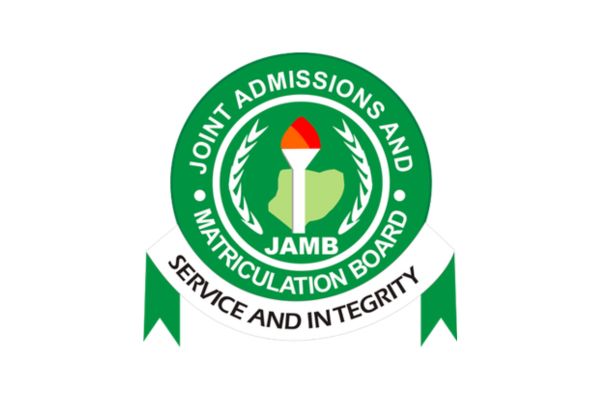Across the nation, admission to universities, polytechnics, and institutions of education in Nigeria has traditionally been based on the results of the JAMB exam. This standardized test plays a crucial role in determining the academic future of millions of students each year. But among the numerous success stories, high achievers, and outstanding performances, there is another, less well-known end of the spectrum—those who struggle to meet the required cut-off marks. Unfortunately, if your JAMB score is less than 100, you have very little chance of gaining admission into any Nigerian higher education institution, as most schools have strict minimum requirements. Even so, the kind of institution you are admitted to will largely depend on your overall score. If you receive a score of 100 or more, you may still stand a chance of being admitted into certain polytechnics, colleges of education, or other specialized institutions, although your options may be limited compared to those with higher scores.
Lowest Jamb Score Ever
While most applicants work hard, study diligently, and strive to achieve excellent scores to secure admission into the schools of their choice, other people wind up on the opposite end of the spectrum, struggling with extremely low results that defy expectations of academic achievement. These low scores often raise questions about the effectiveness of the education system, the availability of resources, and the personal challenges faced by students.
Investigating the reasons behind the lowest JAMB score ever takes one on an engrossing trip through the several elements that contribute to such results, including poor foundational education, lack of access to quality teachers, inadequate study materials, socio-economic hardships, and even issues related to mental health and test anxiety. These factors, combined with systemic educational deficiencies, paint a broader picture of the challenges faced by students in Nigeria’s academic landscape.
- If you score 160 or above in the Joint Admissions and Matriculation Board (JAMB) examination, you have the opportunity to gain admission into a university in Nigeria. However, while this score meets the general minimum cut-off for some universities, it does not guarantee admission into all institutions or competitive courses. Different universities, faculties, and programs have varying cut-off marks, with some requiring significantly higher scores, especially for courses such as Medicine, Law, and Engineering.
Therefore, students aiming for admission should not only focus on achieving the minimum score but strive for excellence to increase their chances of gaining entry into their desired institutions and courses of study.
- If you score between 120 and 159 in the Joint Admissions and Matriculation Board (JAMB) examination, you have the opportunity to gain admission into a polytechnic in Nigeria. While universities typically require higher scores, polytechnics offer an alternative pathway for students to pursue tertiary education and acquire practical skills in various fields.
Different polytechnics may have specific cut-off marks for courses, meaning that some competitive programs might demand scores closer to the upper range of this bracket. Admission is also influenced by additional factors such as post-UTME screenings and O’Level results.
Polytechnics provide valuable technical and vocational education, equipping students with industry-relevant knowledge and hands-on experience. Those who perform well can later pursue direct entry into universities to further their academic journey and obtain higher qualifications.
- If you score between 100 and 120 in the Joint Admissions and Matriculation Board (JAMB) examination, you can gain admission into a college of education in Nigeria. These institutions focus on training future teachers by providing them with the necessary knowledge and skills to excel in the education sector.
Colleges of Education play a crucial role in the academic system, offering diploma programs that prepare students for careers in teaching at primary and secondary school levels. While the admission requirements may be lower compared to universities and polytechnics, candidates must still meet the institution’s specific criteria, including O’Level subject combinations.
Graduates from these colleges can further their studies through direct entry into universities, enabling them to obtain higher qualifications in education or related disciplines. This pathway provides an opportunity for career growth and professional development within the teaching profession.
- If you score between 100 and 120 in the Joint Admissions and Matriculation Board (JAMB) examination, you have the opportunity to gain admission into an Innovation Enterprise Institution (IEI) in Nigeria. These institutions are designed to provide specialized technical, vocational, and entrepreneurial training to students seeking practical skills in various industries.
Innovation Enterprise Institutions focus on equipping individuals with hands-on experience in fields such as information technology, business management, hospitality, engineering, and creative arts. Admission requirements may vary depending on the program, but candidates must meet the necessary O’Level subject qualifications to enroll in their chosen course.
Graduates from these institutions can either enter the workforce immediately or further their education by pursuing higher qualifications in universities or polytechnics. This pathway allows individuals to develop industry-relevant expertise, increasing their employability and career prospects in specialized fields.
Lowest Jamb Score
As of today, the lowest JAMB score in the history of the Joint Admissions and Matriculation Board (JAMB) is 11, recorded in the year 2021. This astonishingly low score shocked many and raised concerns about the factors that could have led to such an outcome. The total aggregate score of the candidate was just 11 out of a possible 400, sparking widespread discussions about the state of education in Nigeria and the challenges faced by students who perform poorly in standardized exams.
This record-low score sheds light on the struggles within the education system, including inadequate teaching methods, lack of access to proper learning materials, socio-economic difficulties, and personal challenges that hinder students from performing well. It serves as a reminder that beyond the numbers, there are underlying issues that need urgent attention, such as the need for curriculum improvements, better teacher training, and more supportive learning environments. Addressing these challenges is crucial to ensuring that every student has a fair chance to succeed academically and reach their full potential.
Subject breakdown:
English- 6
Government- 3
Christian Religious Studies: 1
Economics- 1
Conclusion
As the story of the lowest-ever JAMB score is revealed, it becomes clear that there are much more serious problems at play than just the candidate’s academic shortcomings. This issue goes beyond individual performance; it is a reflection of deep-rooted societal injustices, systemic educational failures, and underlying socioeconomic disparities that hinder students from reaching their full potential. It highlights the urgent need for reforms that address these challenges comprehensively, ensuring that every student, regardless of background, has access to quality education, proper learning resources, and a supportive environment.
A more inclusive and fair educational system can only be fostered by stakeholders working together—government agencies, educators, policymakers, and communities—to tackle the root causes of low JAMB scores. By improving teaching standards, investing in educational infrastructure, providing financial aid, and implementing policies that bridge the educational gap, Nigeria can create a system that offers equal opportunities for all students to succeed, regardless of their socio-economic circumstances.
The key to establishing an atmosphere where each student has the chance to realize their full potential is to emphasize holistic approaches to education, provide adequate learning support, offer resources for students going through personal and socio-economic difficulties, and carry out systemic changes that address educational inequalities. The lowest-ever JAMB result should not be seen merely as a failure but rather as a wake-up call for society to take meaningful action. It should serve as a call to action for constructive change, urging policymakers, educators, and stakeholders to work toward creating a more welcoming, inclusive, and equitable educational environment that empowers all students to succeed.





